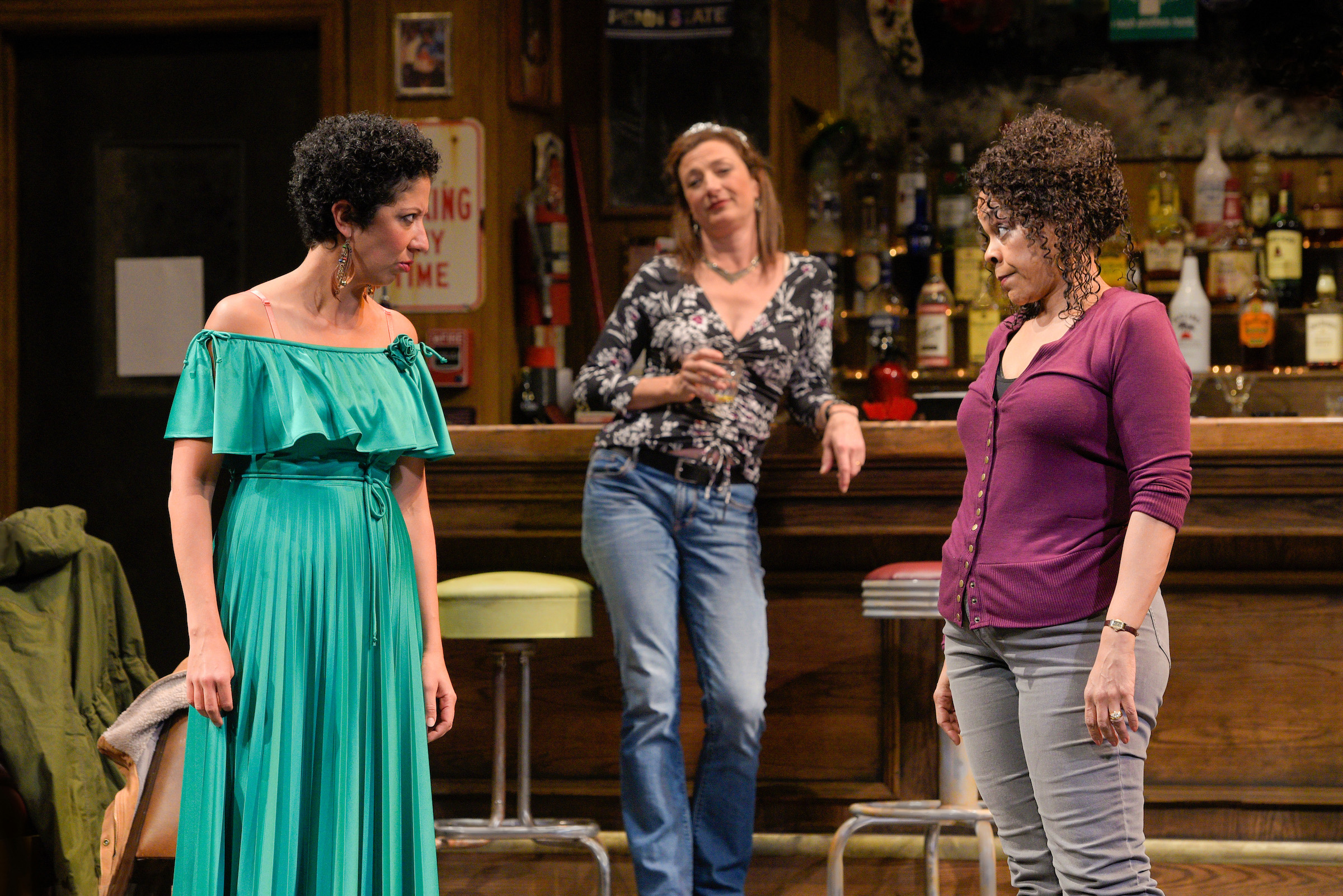ACT’s production of “Sweat” is some of the finest Bay Area theater you might ever see. Founded in Lynn Nottage’s nearly perfect script, ACT takes it to the next level with complementary design work and gritty acting that portrays the truth without dramatizing it for the sake of dramatization.
Nottage’s “Sweat” tells of poor, working-class Americans, both white and Black, who work in the steel mills of Reading, Pennsylvania, during the time of deindustrialization in the early 2000s. Nottage is the first woman to twice win a Pulitzer in drama – the second time for “Sweat.” Such a magnificent wonder of writing that has made this large of an impact on the American canon would seemingly be written in the late 2000s at best. However, “Sweat” was actually commissioned by the famous Oregon Shakespeare Festival as part of its American Revolutions series and premiered in 2015, even though Nottage began writing the play and interviewing subjects in 2011.
In many ways, “Sweat” is timeless. The blue-collar characters are often described as those who would have voted for Trump in 2016 – people disgruntled with those in power and perceiving jobs as being stolen by Mexican workers and immigrants. Despite its origin before the Trump era, “Sweat” depicts the slow breakdown between close friends Tracey (Lise Brunea) and Cynthia (Tonye Patano), a white woman and Black woman, respectively, as they devolve into shells of former friends as Tracey develops a race-fueled hatred for Cynthia when the latter beats out the former for a coveted steel mill management job. As the play progresses, the workers are shut out of the factory – and the only job many have held for their entire lives – forcing them to develop a hatred for those crossing the line and filling the jobs that they want and need for their livelihoods.

“Sweat” bookends the play and each of the acts with scenes from 2008, framing the play with depictions of where the characters are eight years later. It’s a haunting sight, the pieces lingering in one’s mind as the play goes on. Director Loretta Greco accomplishes this with grace, adding a cinematic feel with the lifelike set and scenic transitions that combine music with projections that act as reminders that the play is modeled after real life, real accounts and a reality that people are still experiencing today.
With scenic design by Andrew Boyce, the setting of “Sweat” allows for the set – a fictional bar in Reading – to flourish in all its intricate glory, particularly with tiny hallmarks that you’d struggle to notice on any other set – stickers adorning the booths, alcohol bottles lining the back bar. Because the play takes place almost exclusively in the bar, Boyce has the ability to make the set almost completely lifelike, completing an almost fully functional bar (with beer taps!) that the characters play in as they come in after work every day. It’s their one source of enjoyment, their refuge – but it only stays a refuge as long as the friends stay as a refuge for each other.
Projection design by Hana S. Kim begins to feel weighty and overbearing once monologues and discernible footage from the 2000s play between scenes, but the projections shine when they act as an ambient reminder of the deindustrialization that forced so many workers into the mindsets that they held. Clips of cities, industrial settings and nearly dialogue-free moments of iconic Philadelphia sports events and public events set the scene for the tragedy that no one saw coming but knew it all in their hearts as true. Coupled with music by sound designer Jake Rodriguez, the play feels stripped down to its bones and supported by the utterly real and raw acting alongside the projection and sound design that time-warp us all back to 2000.

“Sweat” is probably one of the most – if not the most – intense productions I’ve ever seen that doesn’t rely on shock value to impress or engage. Nottage’s masterpiece runs at a lengthy two hours and 40 minutes including intermission, yet every moment is placed carefully and every word is pristine. Time doesn’t run too slow or too fast in ACT’s production, and as every month passes with every scene, the slow devolution of the onstage friendships feels real and organic. Little clues and hints jump out with every scene – the billboards high up on the stage change and morph over time, and the friend dynamic starts to slowly disintegrate – and viewers are helpless to stop it as they see the signs.
The final showdown in “Sweat” is inevitable, and that’s what makes it so powerful. The only major fight scene in the play takes no more than 30 seconds, and then it’s over – the damage is done, the full consequences only to be revealed in 2008, when it devastates the most. And then the play ends, and you’re left to linger in Nottage’s beautiful, devastating mess forever.
ACT’s “Sweat” plays at the Geary Theater in San Francisco until October 21.
Contact Olivia Popp at oliviapopp ‘at’ stanford.edu.
